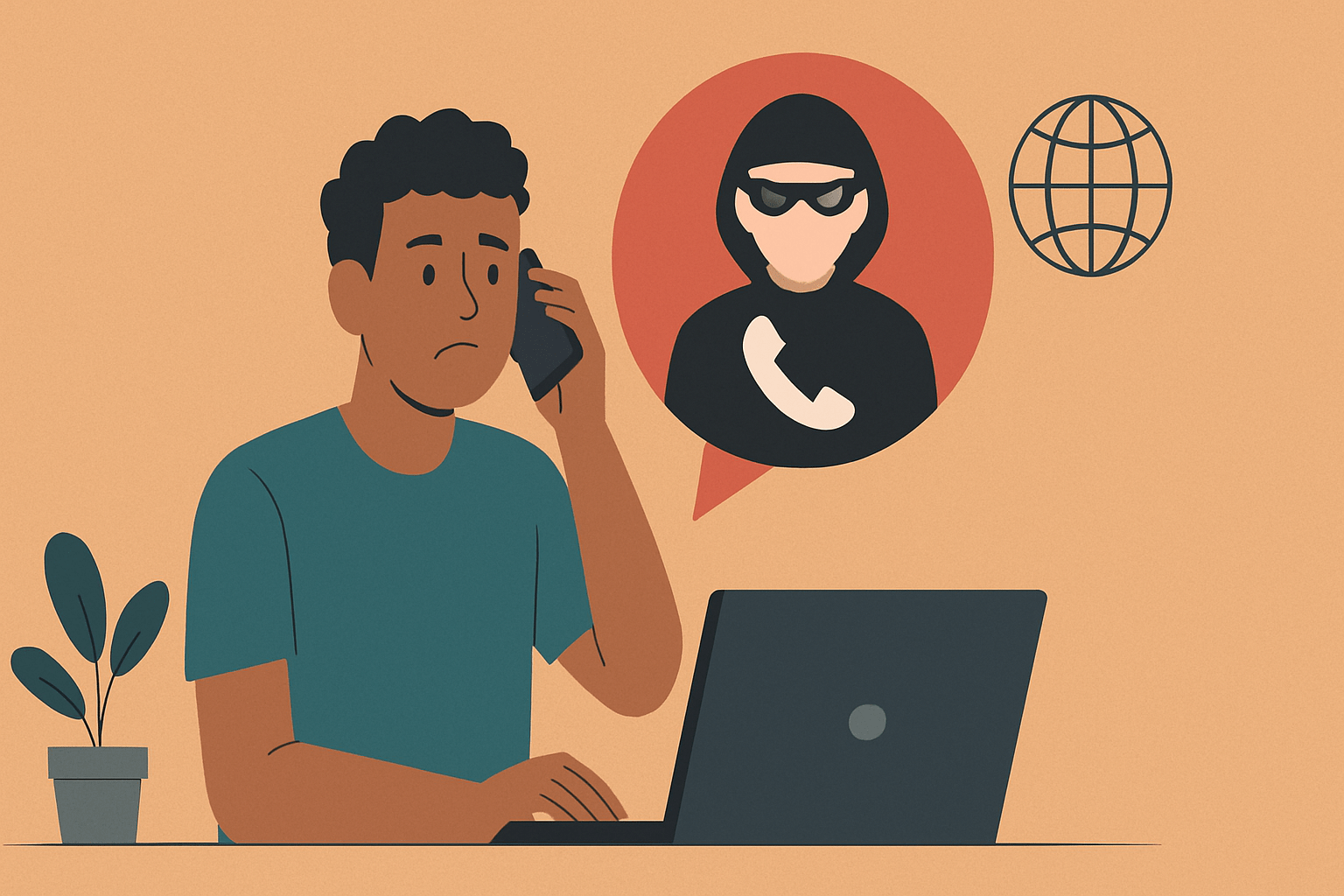Have you received a call from an international number with country code +92 or +44 and got scammed in the name of parcel delivery, customs duty, etc? Do not fret! There are ways to raise the concern and to file an international fake call complaint.
Let’s break it down, step by step.
International Fake Calls
International fake calls are on the rise, using foreign numbers to lure Indians into panic, urgency, or greed. The goal? One wrong move from your side, and your money vanishes.
So, how to check if a phone number is scam?
Well, the biggest red flag is the code.
Scammers use international numbers to dodge Indian laws and trigger panic. These calls are mass-targeted, not personal.
Why international numbers?
They bypass DND filters, are harder to trace, and feel more “official” — making you more likely to answer.
Common scam codes:
+92 (Pakistan), +63 (Philippines), +971 (UAE), +1 (USA/Canada), +44 (UK)
In general, the international country code is the biggest sign to spot such scams. Other than this, following are some of the red-flags you can watch out.
- One-ring missed calls
- Claims about customs, visa, or embassy issues
- Threats involving passport, police, or banks
- Lottery/job offers from abroad
- Requests for OTPs, Aadhaar, or app installs
If it feels off, don’t respond. Scammers want you to panic and act fast. Don’t give them that chance.
How to Report an International Scam Call in India
If you’ve received a suspicious international call or been targeted by scammers, it’s important to report it through official and recognized channels.
This not only helps protect you but also prevents others from becoming victims.
File a Cyber Crime Complaint
Visit cybercrime.gov.in, the Government of India’s official cybercrime reporting platform.
- On the homepage, select the option “Report Other Cybercrime”.
- Fill out the complaint form with accurate details, such as the scammer’s phone number, the type of call, any screenshots or call logs, and your contact information.
Lodge an FIR at the Local Police Station
In addition to the online portal, it’s recommended to file a complaint in person at your nearest Cyber Crime Police Station.
- Carry printed evidence such as screenshots of the call, call logs, and any messages received.
- Request a written acknowledgment of your complaint for reference.
Notify Your Mobile Service Provider
Inform your telecom operator about the scam number. Most providers have spam or DND complaint systems in place.
- You can typically report via SMS by sending the scam number to 1909 or a specific complaint number provided by your operator).
- Alternatively, visit your telecom provider’s official website or app to submit a complaint under their spam or DND (Do Not Disturb) section.
If you’ve shared sensitive information or lost money in a scam:
- Contact your bank
- Freeze your account or block the transaction
- Update all security details
- Change your UPI PINs, passwords, and online banking credentials
- Block your SIM if you suspect it’s been compromised.
Need help?
Register with us, and we will guide you through the process to draft and document your complaint online on the respective portal, using the right protocol.
Conclusion
Scam calls — especially those from international numbers- aren’t going anywhere. But here’s the truth: the more people stay aware and take action, the harder it becomes for these scams to succeed.
So, the next time you get a random call from a foreign number, whether it’s from a +92, +62, or some unknown code, don’t panic. Don’t share your name, your OTPs, or any bank details.
And whatever you do, don’t call back if it was just a missed ring. That’s often how these scams begin.
If something feels off, trust your gut — and report it. You might think, “I didn’t lose anything, so what’s the point?” But every single report helps build a trail that makes it easier for cyber authorities to track and take action.







